#EPA
Even Automakers Disagree With Trump's Choice to Abandon the Paris Accord
On Thursday, President Trump made the decision to ditch the Paris climate accord and the entire internet seemingly spent the next twelve hours calling it a misstep. Either the president possesses a hidden wisdom on the subject that nobody else can seem to fathom, or he has severely misjudged the public’s position on environmental issues. Calling the accord “unfair at the highest level to the United States,” Trump suggested the deal was detrimental to the country’s manufacturing efforts and gave other nations a financial advantage.
However, the instant feedback from the automotive industry did not appear to share his viewpoint. With nearly 200 other countries still adhering to the nonbinding Paris agreement, it’s almost as if Trump had forgotten car companies operate on a global stage. Both General Motors and Ford Motor Company issued statements in opposition to Trump’s decision.
“We believe climate change is real, and remain deeply committed to reducing greenhouse gas emissions in our vehicles and our facilities,” announced Ford. “Our commitment to sustainability is why we’re investing so heavily in electrification and adding 13 new electrified vehicles to our lineup.”
President Trump Planning to Abandon Paris Climate Accord: Reports
President Donald Trump has said he’ll be providing his thoughts on the Paris climate deal in the coming days, but media outlets are already suggesting his take on the issue will be to leave it. Sources are claiming the president’s mind is made up and, to the surprise of no one, odds are good he will withdraw the U.S. from the deal.
Trump has already made it his mission to overturn as many Obama-related policies as possible and seems unconcerned with environmental issues that might stand in the way of potential manufacturing opportunities. Since taking office, Trump has been pushing regulators to rethink the United States’ auto emission guidelines, undoing one of the previous administration’s final acts in office.
Pulling out of the Paris accord would fulfill a campaign promise and negate the need for the U.S. to adhere to rigid emission standards — at the expense of further alienating the president from Europe’s leadership.
Justice Department Sues Fiat Chrysler Over Diesel 'Defeat Devices'
The U.S. Department of Justice has filed a civil lawsuit against Fiat Chrysler Automobiles, alleging the automaker violated the Clean Air Act.
At the root of the lawsuit is roughly 104,000 Ram 1500 and Jeep Grand Cherokee vehicles equipped with the 3.0-liter diesel V6, sold between 2014 and 2016. Earlier this year, the Environmental Protection Agency accused FCA of failing to disclose eight auxiliary emissions control devices during the certification process. The vehicle’s software allows for higher-than-permitted emissions at certain times.
Despite FCA’s protests — as well as attempts to head off a potential multi-billion-dollar fine — the parallels between this case and Volkswagen’s emissions saga are growing by the day.
Let's Try This Again: Fiat Chrysler Attempts to Certify 2017 Diesel Rams and Jeeps, Avoid Fines
After being forbidden from selling 2017 Ram 1500 and Jeep Grand Cherokee models equipped with the 3.0-liter diesel V6, Fiat Chrysler Automobiles is hoping for a little love from the Environmental Protection Agency.
The EPA suspended the certification process in January after discovering eight undeclared auxiliary emissions control devices on the EcoDiesel models. The existence of the software, installed in those vehicles since the 2014 model year, earned FCA a notice of violation of the Clean Air Act. Since then, the automaker has attempted to work with environmental regulators to smooth over the controversy, even as its mailbox filled with subpoenas from federal and state authorities.
Yesterday, we learned the Justice Department was readying a lawsuit against FCA. With the potential for billions of dollars in fines staring it in the face, FCA has whipped up a new application in the hopes of placating the EPA and selling some light-duty diesels.
Justice Department Prepping for Lawsuit Against Fiat Chrysler
The U.S. Justice Department is preparing itself for a lawsuit against Fiat Chrysler Automobiles over, you guessed it, diesel-burning engines. Cetane-rated fuel has been a broad target for governments lately, but the forthcoming FCA suit is less concerned with what you’re burning than with how you’re burning it.
Officials are concerned the automaker may have used a defeat device after the Environmental Protection Agency accused it of using software that allowed about 104,000 diesel vehicles to emit excess emissions. The models in question are 2014-2016 Jeep Grand Cherokees and Dodge Ram 1500 trucks with 3.0-liter diesel engines.
No Mercedes-Benz Diesels for 2017, or Maybe Ever
Fans of German compression-ignition engines had best dig out those old, glossy posters of an olive green 300D, as they’re going to need it.
Daimler announced it will not sell 2017 diesel Mercedes-Benz models in the U.S. as rumors swirl that the automaker might give up on the segment altogether.
The problem lies in regulatory approval, which Daimler has struggled — and failed — to obtain. Following the Volkswagen diesel scandal, the Environmental Protection Agency and California Air Resources Board began going over diesel emissions with a fine-toothed comb. The four diesels Mercedes-Benz had hoped to sell in the U.S. this year became trapped in a bottleneck last fall.
After killing off the C300d’s prospects for good, the automaker then sought approval for just one model — the GLS350d. No dice. Investigations on both sides of the Atlantic could now cap the company’s 57-year diesel history in the U.S.
As California Fumes, Automakers Head to Washington to Talk Emissions
A slew of automakers are scheduled for a Thursday meeting with the heads of the Environmental Protection Agency and U.S. Department of Transportation to go over existing Obama-era efficiency rules. Transportation Secretary Elaine Chao and EPA Administrator Scott Pruitt will both be on hand to discuss — and likely reassure — manufacturers on the future of the guidelines.
In March, President Donald Trump ordered an extensive review of U.S. light vehicle fuel-efficiency standards for the 2022-2025 time frame, despite the Obama administration locking them in well ahead of the midterm review’s April 2018 deadline. The decision was rushed to maintain the administration’s climate change policy and avoid any tampering from incoming Trump appointees. While there remains much to be done before the standing emission limits can be rolled back, wheels are now in motion.
Volkswagen's Diesel Whistleblower Identified in New Book
While it wasn’t quite on par with the drama of a mob trail, the criminal case of Volkswagen’s diesel emissions scandal possesses a lot of similarities. A break in the case, police raids, a powerful family, an unwillingness to cooperate with authorities, and an informant that made it all possible. But just who was the Henry Hill to Volkswagen’s Lucchese crime family?
According to a new book on the subject, written by New York Times reporter Jack Ewing, VW’s Engineering and Environmental Office head Stuart Johnson was the primary contact for the United States’ regulatory agencies. Johnson was on the front lines of the scandal and was among the first managers the EPA publicly reached out to in September of 2015, but it seems that may have been a ploy not to blow his cover — he had already spoken to the California Air Resources Board a month earlier.
That's Off-The-Record: A CAFE With a Bad Menu
Not to go all political on you, but it’s amazing how President Obama acted more like a bitter foreclosure victim — one who goes nuts and destroys as much of the house as they can, just short of being arrested for vandalism — during his last days in office, and not a graceful man given two terms as the leader of the free world.
Mr. Obama did this in two ways: one action affected a short list of government folk, and the other impacted one of the most important industries in our lives — the auto industry.
The short-listed government victims are those affected by Obama’s order to share dirt on people talking with “foreigners.” It’s against the law — but when did that stop the former President? What’s worse, and perhaps deadly, is Mr. Obama’s decision to renege on his promise to check and perhaps re-adjust the daunting future Corporate Average Fuel Economy (CAFE) standard his administration first put in place in 2009, which the administration made even wackier in 2011.
Volkswagen Reveals Plans for Court-ordered EV Charging Network
A large part of Volkswagen’s emissions scandal penance involves a gargantuan investment into eco-centric technologies and the development of the United States’ electric vehicle infrastructure. The latter should come by way of its Electrify America subsidiary and four $500 million investments separated by four 30-month periods over the next 10 years.
We now know exactly how VW intends to roll out the green carpet with its court-mandated funding.
White House Plan Virtually Eliminates Funding for EPA Emissions Testing
The Trump administration’s current plan for the Environmental Protection Agency budget removes nearly all funding for vehicle emissions testing. Proposed cuts to the EPA’s budget would eliminate 99 percent of the agency’s $48 million in funding for vehicle testing, shouldering automakers with increased fees to split the difference.
However, former head of the EPA’s Office of Transportation and Air Quality Margo Oge is claiming that such a large cut would force the agency into “pretty much shutting down the testing lab” regardless of corporate contributions.
Get Ready to Line Up for a 2015 Volkswagen TDI!
If you’ve felt left out of the Volkswagen diesel affair until now, chin up. You’ll soon be able to purchase your very own piece of automotive scandal history.
The Environmental Protection Agency has approved the sale of 2015 Volkswagen Group vehicles equipped with Generation 3 2.0-liter diesel engines, making this the first time any of the half-million-plus sidelined vehicles have been legally available to customers since the scandal began.
The contrarian’s list of unlikely daily drivers just grew a bit longer.
California Maintains Obama-era Emissions Rules in Affront to Trump's EPA
California has green-lit light-vehicle pollution targets that the Trump administration has placed under review. As expected, t he Golden State is going to continue playing hardball over Environmental Protection Agency regulations.
Already critical of the automotive industry for asking the president to reconsider federal guidelines through 2025, the California Air Resources Board hinted that it wouldn’t stray from the emission targets set by the Obama administration in 2012. On Friday, CARB finalized its state emissions rules while setting an updated ordinance on zero-emission vehicles. “We’re going to press on,” said Mary Nichols, head of the board, during last week’s press conference.
Fuel Regulation Compliance Costs Could Be 40% Lower Than EPA Estimate
An economic assessment conducted by the International Council on Clean Transportation found that, due to recent improvements in technology, the Environmental Protection Agency’s rationale for its 2025 fuel efficiency standards may have overestimated the cost for automakers to comply. The ICCT’s study shows average per-car investments 34 to 40 percent lower than the previous EPA appraisal.
While this information, had it come out sooner, may not have kept automotive executives from bending the president’s ear to reevaluate EPA guidelines, it certainly reframes their reasons for doing so. The ICCT, famous for turning researchers loose on Volkswagen diesels, makes a good case that manufacturers have the tools to meet current standards without spending a lot of money.
EPA Confirms 2025 Reg. Review as Trump Promises More American Automotive Might
Donald Trump said Wednesday his administration will reopen a review of the current auto emissions directives passed in the final throes of the Obama presidency. This is cause for celebration for automakers, who’ve practically begged the president to repeal the mandates on grounds that the goals are far too uncompromising and ill-suited for the present-day market.
Speaking at the American Center for Mobility, President Trump promised to bring more manufacturing back into the United States and continue to bring down regulatory barriers so that automakers can continue to thrive.
“We’re going to work on the CAFE standards so you can make cars in America again,” Trump said. “There is no more beautiful sight than an American-made car.”
Clearly, the president has either never seen an Aston Martin or is trying to make a point about the importance of domestic product.




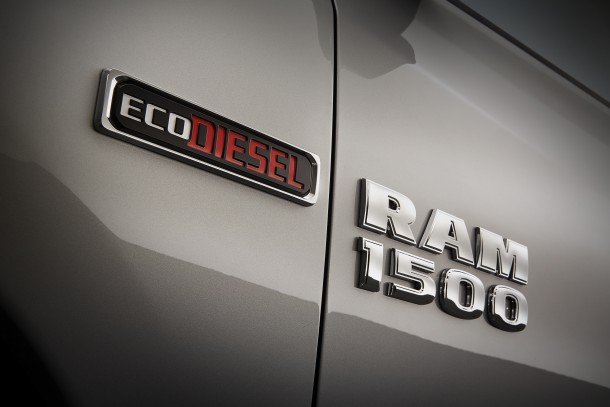
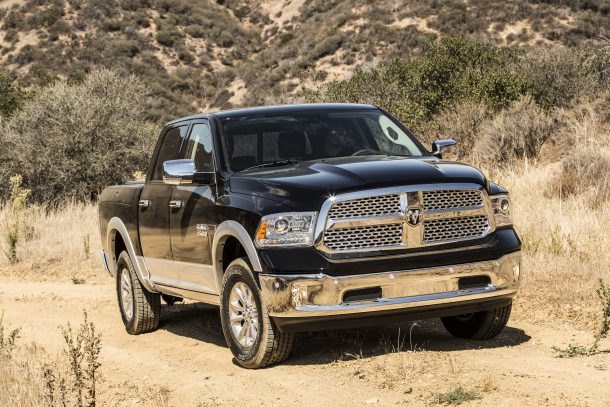

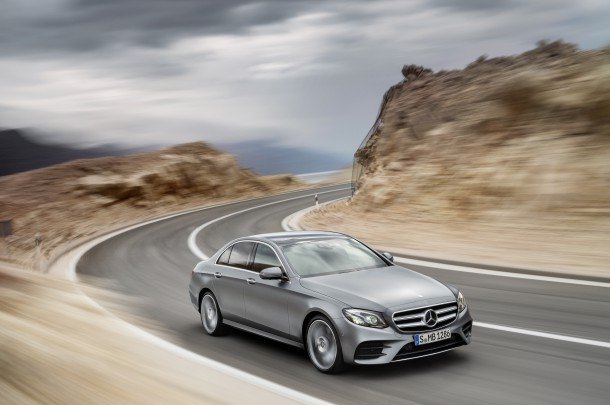


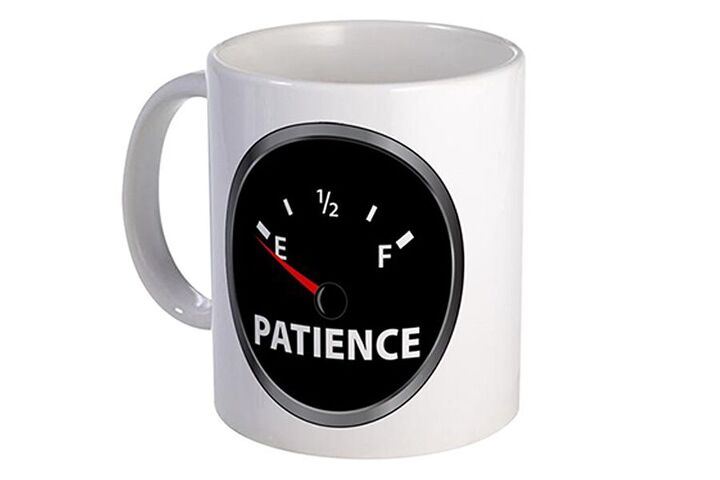



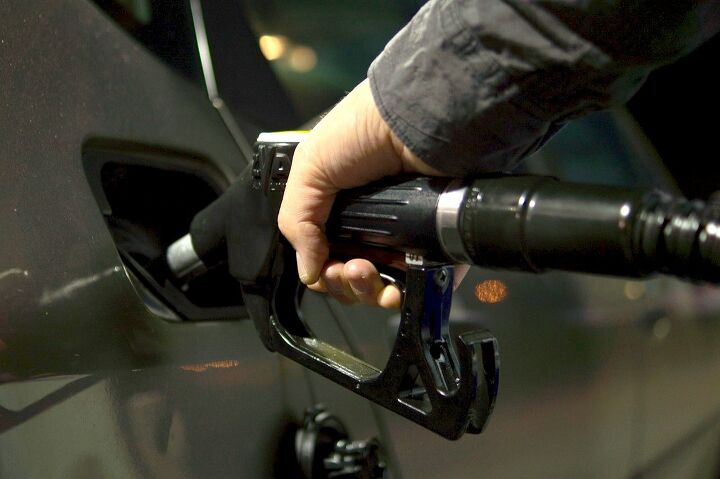












Recent Comments